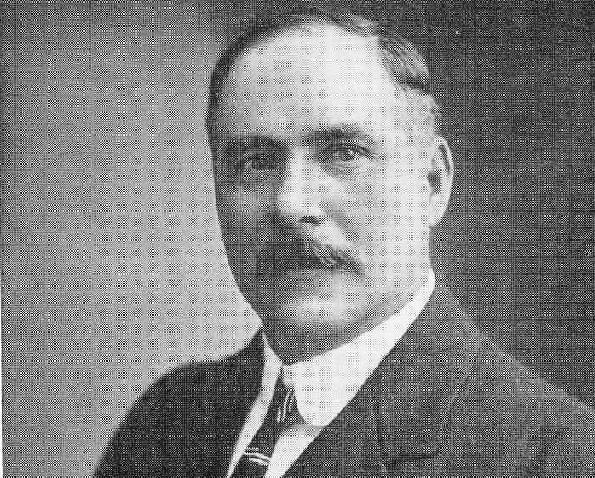Biography of Albert Stanley MP
Albert Stanley MP
by Shirley Bruneau
 Albert Stanley was born on 7 June 1862 into a coal mining family and was baptized at St Leonard’s Church in Malinslee on the 6 July that year. He was the seventh child of ten children to his parents Richard and Martha Stanley. Albert, like his father and brothers before him, started work as a miner aged of eleven years and yet by the time he died he had become a Member of Parliament for North West Staffordshire.
Albert Stanley was born on 7 June 1862 into a coal mining family and was baptized at St Leonard’s Church in Malinslee on the 6 July that year. He was the seventh child of ten children to his parents Richard and Martha Stanley. Albert, like his father and brothers before him, started work as a miner aged of eleven years and yet by the time he died he had become a Member of Parliament for North West Staffordshire.
Albert was born in the hamlet of Dark Lane in Dawley; his family was Primitive Methodists attending the Primitive Methodist Chapel in Dark Lane. He was educated at a Dame School and then at the local National School. Whilst a young miner and keen to progress, he developed a great love for books which he was to carry with him all his life. He borrowed and bought second hand books which he used to study at night and by the time he was fourteen years old he was well known in the Dawley area as “The Boy Preacher” and used to preach to large congregations. He could not afford to become a Methodist Minister as that would have entailed further costs to train, but he was received as a local preacher by the Primitive Methodist Church: he used to apparently stand on a stool in the pulpit when delivering his sermons. His great oratory skills ensured him his large audiences. He was to continue preaching in chapels throughout Shropshire and Staffordshire for the next twenty five years.
He first worked at Stirchley Coal and Iron Company Colliery alongside his father. His family moved to Hednesford in Staffordshire, probably to find work as the slump hit the East Shropshire Coalfield, and he and his father became miners at number one Pit of the west Cannock Colliery Company. Tragically, his father was to die there in an explosion at the mine. In 1881 his family was living at West Hill, Hednesford and Albert was listed on the census return as a coal miner. Albert started to become interested in Trade Union affairs whilst working at the pit and when he was fifteen he became Secretary to the Young Liberals Association. After being seriously injured in a mine accident when he was nineteen, Albert gave up his work as a miner and a year later in 1884, he was elected agent for the Cannock miners. He married Ellen after moving to West Hill; she had been a childhood sweetheart having been born in the parish of Malinslee in Greater Dawley. By the next census of 1891 he was listed as having two sons and one daughter. By the 1901 census, still listed as a Miner’s Agent, and continuing to live in West Hill, he had 5 children and a young housemaid, demonstrating his rise in status.
Becoming steadily more involved in Trades Union politics, in 1890 Albert represented the Cannock Chase Miners’, Enginemen and Surfacemen’s Union when its membership was 4000. He also became Secretary to the Midlands Miners’ Federation, a position he held until his death. He attended the founding conference of the Miners’ federation of Great Britain in 1889 and served on its executive committee until 1812.
He continued his involvement in the Liberal Party and with the politics of the day. He believed passionately in Home Rule for Ireland and was an ardent follower of Gladstone. He was one of the founder members of the Midland Liberal Federation in 1894. Although he was asked in 1896 and again in 1900 if he would stand for parliamentary election, he declined. However, he did decide to represent the party at Parliamentary elections in 1907. He stood as a Lib/Lab candidate and was elected MP for North West Staffordshire. He was then re-elected twice more with an increasing majority implying his popularity as an MP.
In 1912 he celebrated twenty five years of his official connection with Cannock Chase miners. He died in 1915 at fifty two years old. It was said that “There were drawn blinds in every mining village of Cannock Chase; veterans of the pits and their sons too felt that they had lost a great champion.”

